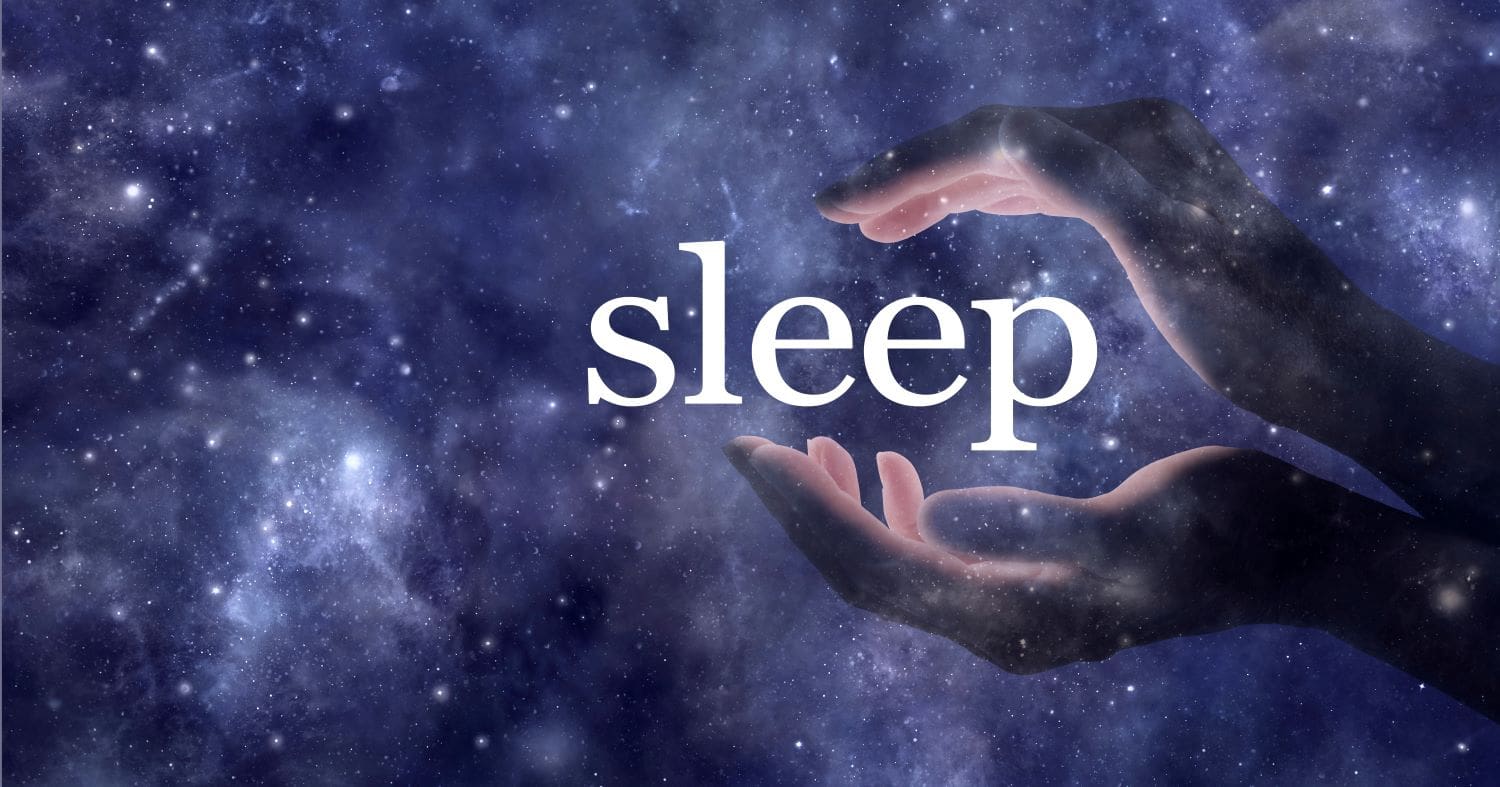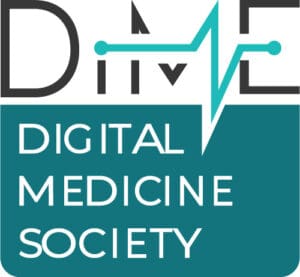
Behavioral Sleep Medicine
Evidence-Based Sleep Therapy vs. Medications:
Why CBT-I Delivers Lasting Results
If you’re searching for behavioral sleep medicine in Los Gatos or the Silicon Valley area, you’ve likely already tried sleeping pills, melatonin, or other supplements with disappointing results. As a board-certified clinical psychologist specializing in Cognitive Behavioral Therapy for Insomnia (CBT-I), I offer something fundamentally different: a scientifically-proven approach that addresses the root causes of chronic insomnia, not just the symptoms.
Why CBT-I Outperforms Sleep Medications: The Research Is Clear
Unlike sleeping pills that lose effectiveness over time or supplements with limited evidence, CBT-I is recognized by the American College of Physicians as the first-line treatment for chronic insomnia. This behavioral sleep medicine approach doesn’t just help you fall asleep faster tonight; it also permanently restructures your sleep patterns by targeting the cognitive and behavioral factors that maintain your insomnia.
Research consistently shows that CBT-I produces:
- 70-80% improvement rates in chronic insomnia sufferers
- Results that persist years after treatment ends
- Zero dependency risk or morning grogginess
- Enhanced daytime functioning and reduced anxiety about sleep
While prescription sleep medications work by sedating your brain, often disrupting natural sleep architecture,CBT-I restores your body’s natural sleep-wake cycle. This drug-free insomnia treatment empowers you with evidence-based techniques that become more effective over time, not less.
This positions Dr. Estupinian’s expertise while incorporating key search terms naturally and emphasizing the evidence-based approach that differentiates her from less qualified providers. The content is structured to potentially capture featured snippets while maintaining the professional tone appropriate for her corporate and executive clientele.
Feature | Cognitive Behavioral Therapy for Insomnia (CBT-I) | Prescription Sleeping Pills (e.g., Ambien) | Over-the-Counter Supplements (e.g., Melatonin) |
Core Approach | Addresses the root causes of insomnia (thoughts & behaviors). | Masks the symptoms of insomnia. | Symptom management, often perceived as more “natural.” |
Effectiveness | 70-80% of patients experience significant, lasting improvement. 1 | Effective in the short-term, but effectiveness can decrease over time. | Effectiveness for chronic insomnia is debated and not as robust as CBT-I. |
Long-Term Results | Effects are durable and long-lasting, with studies showing benefits maintained for up to 10 years after treatment ends. 2 | Problems often return when medication is stopped, leading to a cycle of dependency. | Does not address root causes; long-term safety concerns have been raised. |
Side Effects & Risks | May cause temporary sleepiness at first as your body adjusts; no drug-related side effects. | Can cause next-day grogginess, dizziness, memory issues, and a risk of physical and psychological dependence. | Often considered harmless, but a recent large-scale study found an association between long-term use and a significantly higher risk of heart failure and other serious outcomes. 5 |
Skills Learned | Empowers you with lifelong skills to manage your sleep independently. | Teaches no skills for managing sleep problems, making it a temporary crutch. |
What is Behavioral Sleep Medicine?
Behavioral Sleep Medicine is a specialized field that combines principles from psychology, physiology, and sleep science to address various sleep disorders without primarily relying on pharmaceutical interventions. It focuses on modifying behaviors and thoughts related to sleep, allowing for sustainable, long-term improvements in sleep quality and overall health.
The Melatonin Myth: Why "Natural" Doesn't Mean Safe or Effective
Many professionals in Silicon Valley often turn to melatonin supplements, assuming this “natural” option is both harmless and adequate for chronic sleep problems. As a clinical psychologist specializing in behavioral sleep medicine, I need to share what the latest research reveals about these widely used supplements, findings that may surprise you.
Alarming New Research on Melatonin’s Long-Term Risks
While melatonin is indeed a naturally occurring hormone, taking it as a supplement carries risks that aren’t widely discussed. Groundbreaking research presented at the American Heart Association’s Scientific Sessions 2025 examined over 130,000 adults and uncovered sobering findings: Those using melatonin for one year or longer showed a 90% increased risk of developing heart failure and nearly double the risk of all-cause mortality compared to non-users.
Though this research demonstrates correlation rather than direct causation, it underscores a critical reality for busy professionals: Any substance that artificially manipulates your sleep, whether prescription, over-the-counter, or “natural,” fails to address the underlying mechanisms of insomnia and may introduce unexpected health risks.
"melatonin supplements may not be as harmless as commonly assumed."
Dr. Ekenedilichukwu Nnadi Tweet
Why Leading Medical Organizations Recommend CBT-I Over Supplements
The American College of Physicians doesn’t recommend CBT-I as first-line treatment by accident. Extensive research demonstrates that while sleep medications and supplements might provide temporary relief, CBT-I delivers equal short-term effectiveness with superior long-term outcomes without introducing foreign substances into your system. This behavioral approach to insomnia treatment represents the gold standard in sleep medicine, offering sustainable results that persist years after treatment completion.
For executives managing high-stress careers and complex health considerations, CBT-I provides the evidence-based, medication-free solution that aligns with optimal performance and longevity goals. You’re not just treating tonight’s sleep problem; you’re developing mastery over your sleep-wake system for sustained professional excellence.
Is CBT-I Right for You?
Evidence-Based Sleep Therapy for High-Performing Professionals
If you’re reading this from your Los Gatos, Saratoga, or Silicon Valley office at 2 AM because you can’t sleep, you’re exactly who this treatment was designed for. CBT-I demonstrates particularly powerful results for specific populations that Dr. Estupinian frequently treats:
Technology Executives and Entrepreneurs
The always-on culture of Silicon Valley creates unique sleep challenges. Whether you’re dealing with decision fatigue from board meetings, anxiety about market volatility, or the cognitive hyperarousal that comes with managing multiple ventures, CBT-I addresses the specific thought patterns keeping high achievers awake. Research shows that executives who complete CBT-I report not only better sleep but also enhanced decision-making capacity and emotional regulation during high-stakes negotiations.
Healthcare Professionals and Shift Workers
Physicians, nurses, and emergency responders in the Bay Area’s medical centers face circadian rhythm disruptions that sleeping pills can’t fix. CBT-I includes chronotherapy and circadian rhythm interventions designed explicitly for irregular schedules. Studies indicate that healthcare workers who use CBT-I show improved patient safety metrics and reduced burnout compared to those who rely on sleep medications.
Adults Over 55 Seeking Medication-Free Solutions
As we age, sleep architecture naturally changes, but that doesn’t mean you have to accept poor sleep. Older adults in Los Gatos and surrounding communities particularly benefit from CBT-I’s non-pharmacological approach, avoiding dangerous drug interactions with other medications. Clinical trials demonstrate that adults over 55 maintain CBT-I benefits longer than any other age group, with 85% still sleeping well two years post-treatment.
Professionals Tapering Off Sleep Medications
If you’ve been taking Ambien, Lunesta, or benzodiazepines for sleep and want to stop, CBT-I provides the exit strategy your doctor may not have discussed. Dr. Estupinian coordinates with prescribing physicians to create safe tapering protocols while simultaneously building natural sleep capacity. Data shows that 73% of long-term sleep medication users successfully discontinue their prescriptions when CBT-I is incorporated into their tapering plan.
Individuals with Comorbid Anxiety or Depression

Sleep problems and mood disorders create a vicious cycle, as poor sleep worsens anxiety and depression, which further disrupts sleep. As a board-certified clinical psychologist, Dr. Estupinian addresses both simultaneously. Meta-analyses reveal that treating insomnia with CBT-I significantly improves depression outcomes, with some studies showing it doubles the effectiveness of antidepressant medication alone.
High-Stress Professionals Experiencing “Learned Insomnia”
Many successful professionals develop what researchers call “psychophysiological insomnia.” Your bed has become associated with wakefulness and worry rather than sleep. If you find yourself dreading bedtime, experiencing Sunday night insomnia before the work week, or sleeping better in hotels than your own bedroom, CBT-I’s stimulus control and cognitive restructuring techniques are specifically designed to break these learned associations.
Who May Need Additional Assessment
While CBT-I helps most people with insomnia, certain conditions require a comprehensive evaluation first:
- Suspected sleep apnea (snoring, gasping, witnessed breathing pauses)
- Restless legs syndrome or periodic limb movement disorder
- Narcolepsy or hypersomnia
- Parasomnias (sleepwalking, night terrors, REM behavior disorder)
Dr. Estupinian provides a thorough assessment to ensure you receive the most appropriate treatment, collaborating with sleep medicine physicians when medical evaluation is indicated.
What We Can Do For You
Dr. Ginny Estupinian, PhD, ABPP, a board-certified clinical psychologist, offers effective treatments for a wide range of sleep issues, including:
- Insomnia (chronic and acute)

- Circadian Rhythm Sleep-Wake Disorders
- Parasomnias (e.g., nightmares, sleepwalking)
- Sleep-Related Movement Disorders
- Behavioral Insomnia of Childhood
- Hypersomnia
- Sleep-Related Breathing Disorders
Our Approach
Dr. Estupinian utilizes evidence-based techniques tailored to your specific needs:
- Cognitive Behavioral Therapy for Insomnia (CBT-I)
- Sleep Hygiene Education
- Relaxation Techniques
- Stimulus Control Therapy
- Sleep Restriction Therapy
- Chronotherapy
- Light Therapy
- Digital Medicine Applications
Cutting-Edge Digital Medicine Solutions
At the forefront of sleep medicine, Dr. Estupinian integrates digital health technology into her practice to enhance your treatment and progress monitoring:
- Mobile health apps for sleep tracking and habit formation
- Wearable devices to monitor sleep patterns and quality
- Digital tools for cognitive behavioral therapy and relaxation exercises
This innovative approach combines traditional behavioral techniques with modern technology, offering a comprehensive solution for your sleep issues.
The Power of Digital Medicine in Sleep Health
Digital medicine is revolutionizing how we approach sleep disorders, especially where these issues intersect with mood disorders. By leveraging technology, we can:
- Gain deeper insights into your sleep patterns

- Provide personalized interventions based on real-time data
- Offer convenient, accessible tools for managing your sleep health
- Monitor your progress more accurately and adjust treatments as needed
Our digital medicine solutions offer a non-invasive, drug-free alternative for individuals looking for innovative approaches to improve their sleep health and overall well-being.
What Makes Dr. Estupinian’s Approach Different
As a board-certified clinical psychologist with specialized training in behavioral sleep medicine, Dr. Estupinian addresses not just surface sleep symptoms but underlying psychological factors. This integrated approach is particularly crucial for professionals dealing with:
- Performance anxiety affecting sleep
- Work-related stress and burnout
- Concurrent anxiety or mood concerns
- Complex medical or psychiatric comorbidities
Your Investment in Lifetime Sleep Mastery
Dr. Estupinian’s CBT-I program represents a one-time investment that pays dividends for life. Consider the true cost comparison: years of sleep medications (averaging $200-400 monthly) plus their health risks, versus 6-8 weeks of evidence-based treatment that provides permanent skills. Many Silicon Valley professionals find that improved sleep quality enhances their decision-making and productivity, delivering ROI that far exceeds the initial investment. While Dr. Estupinian operates as a fee-for-service practice, she provides detailed superbills that many clients successfully submit for out-of-network reimbursement, depending on their insurance benefits.
Take the First Step Towards Better Sleep
Don’t let sleep issues control your life any longer. Dr. Ginny Estupinian has the experience, skills, and cutting-edge tools necessary to help you overcome your sleep challenges and achieve restful, rejuvenating sleep.
Call us today to schedule your appointment and start your journey to better sleep!
844-802-6512
Discover the power of Behavioral Sleep Medicine enhanced by digital health technology. Wake up to a brighter, more energized you. Contact Dr. Ginny Estupinian today!
Our Services
Contact Us
You are cordially invited to call our office with any questions. We are here to help.
FAQ
How quickly does CBT-I work compared to sleeping pills?
Most clients experience meaningful improvement within 2-4 weeks, with 70% reporting better sleep by week 4. While sleeping pills work the first night, they lose effectiveness over time and don’t address underlying causes. CBT-I builds progressively, creating lasting change. The initial weeks may feel challenging as your sleep system resets, but unlike medication, these improvements persist for years after treatment ends. Silicon Valley executives often report that improved sleep quality by week 3 exceeds what they experienced on Ambien.
Can I do CBT-I while taking sleep medications?
Yes, many clients begin CBT-I while still using sleep medications. Dr. Estupinian coordinates with your prescribing physician to create a safe tapering schedule as your natural sleep improves. Research shows that 73% of long-term sleep medication users successfully discontinue their prescriptions when combining CBT-I with gradual tapering. The behavioral skills you learn provide the safety net needed to reduce medication dependence without experiencing rebound insomnia.
Is CBT-I effective for chronic insomnia lasting years or decades?
CBT-I demonstrates remarkable effectiveness even for individuals who’ve struggled with insomnia for 20+ years. The duration of insomnia doesn’t predict treatment outcome; motivation and commitment to the protocol matter more. Dr. Estupinian has successfully treated Los Gatos professionals who believed they were “permanently broken sleepers” after decades of poor sleep. Studies show that people with chronic insomnia actually maintain CBT-I gains better than those with recent-onset sleep problems.
What's the difference between CBT-I and sleep hygiene advice?
Sleep hygiene alone (avoiding caffeine, keeping bedroom cool) has limited effectiveness for chronic insomnia—like telling someone with depression to “just think positive.” CBT-I is a comprehensive clinical intervention that restructures your entire sleep system through evidence-based psychological and behavioral techniques. While Dr. Estupinian incorporates personalized sleep hygiene, it represents only 10% of treatment. The cognitive restructuring and behavioral interventions that form CBT-I’s core aren’t available in sleep apps or wellness coaching.
How much time commitment does CBT-I require?
Weekly 50-minute sessions plus 15-20 minutes daily for sleep diary and homework exercises. The 6-8 week program requires less total time than most executives spend scrolling phones during sleepless nights in just one month. Dr. Estupinian offers flexible scheduling, including evening teletherapy sessions, to accommodate demanding Silicon Valley schedules. Consider it a temporary sprint with permanent results, unlike the indefinite commitment of nightly sleep medications.
Will CBT-I work if I have anxiety or depression affecting my sleep?
CBT-I often improves both sleep and mood symptoms simultaneously. As a board-certified clinical psychologist, Dr. Estupinian addresses the bidirectional relationship between sleep and mental health. Research shows that treating insomnia with CBT-I can reduce depression severity by 50% and significantly decrease anxiety symptoms. Many clients find that better sleep provides the foundation needed for managing other mental health concerns more effectively.
Is CBT-I covered by insurance or FSA/HSA eligible?
While Dr. Estupinian operates as a fee-for-service practice, she provides detailed superbills for potential out-of-network reimbursement. CBT-I sessions with a licensed psychologist are FSA/HSA eligible medical expenses. Many Silicon Valley professionals find that their employers’ mental health benefits or EAP programs provide partial reimbursement. Consider that the one-time investment in CBT-I costs less than 6 months of prescription sleep medications while providing lifetime benefits.
What if I travel frequently for business?
Dr. Estupinian specializes in adapting CBT-I for busy individuals and executives with demanding travel schedules. The protocol includes strategies for managing jet lag, maintaining sleep gains across time zones, and implementing CBT-I techniques in hotels. Teletherapy options allow session continuity even when traveling. Many international business travelers find CBT-I more practical than managing sleep medications across countries with different prescription regulations.
How is CBT-I different from meditation or relaxation apps?
While relaxation techniques can be helpful, they don’t address insomnia’s core maintaining factors. CBT-I targets the conditioned arousal, sleep effort, and dysfunctional beliefs that perpetuate chronic insomnia. Dr. Estupinian may incorporate targeted relaxation strategies, but these complement rather than replace behavioral and cognitive interventions. Studies comparing CBT-I to relaxation-only treatments show that CBT-I produces twice the improvement in sleep efficiency.
Can CBT-I help with early morning awakening (3-4 AM)?
Early morning awakening responds well to CBT-I, often better than sleep-onset insomnia. The sleep restriction component consolidates fragmented sleep, while cognitive techniques address the anxiety spiral that prevents returning to sleep. Dr. Estupinian helps identify whether early awakening stems from depression, anxiety, or circadian factors, tailoring treatment accordingly. Most clients report sleeping through the night by week 4-5 of treatment.
What happens if CBT-I doesn't work for me?
While CBT-I has a 70-80% success rate, Dr. Estupinian first conducts a thorough assessment to identify cases that require medical evaluation. If sleep doesn’t improve despite adherence to the protocol, she collaborates with sleep medicine physicians to investigate underlying sleep disorders, such as obstructive sleep apnea or periodic limb movement disorder. The skills learned in CBT-I remain valuable even if additional medical treatment is needed. Unlike medication trials, there are no adverse effects from trying CBT-I first.
Do I need a referral to see Dr. Estupinian for CBT-I?
No referral is needed to schedule your initial consultation for behavioral sleep medicine services in Los Gatos. Dr. Estupinian accepts self-referrals from individuals ready to address their sleep problems without medication. However, if you’re currently under psychiatric care or taking sleep medications, she coordinates with your existing providers to ensure comprehensive treatment.